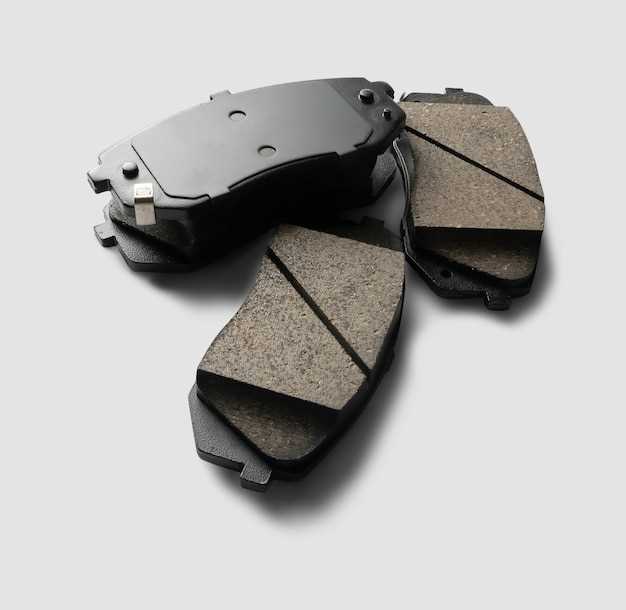
When it comes to maintaining a Toyota, ensuring your vehicle’s safety should be a top priority. One crucial component of this safety is the brake system, particularly the brake pads. Toyota brake pads are designed specifically to meet the performance standards of your vehicle, making it essential to choose the right parts when it’s time for a replacement.
Understanding the key factors for buying Toyota brake pads can help you make an informed decision. Quality should always be a primary concern, as inferior pads can compromise your vehicle’s braking efficiency and overall safety. Look for genuine Toyota parts or high-quality aftermarket options that offer compatibility and durability.
Additionally, consider the type of driving you do, as different pads are suited for varying conditions. If you frequently drive in heavy traffic or perform aggressive driving maneuvers, selecting pads designed for such environments is crucial. Ultimately, investing in the right pads will not only enhance your safety but also improve your overall driving experience.
Understanding Different Types of Brake Pads for Toyota Models

When it comes to maintaining your Toyota, choosing the right brake pads is essential for optimal performance and safety. There are three primary types of brake pads commonly used in Toyota vehicles: ceramic, semi-metallic, and organic.
Ceramic brake pads are known for their longevity and low dust production. They are made from a mixture of ceramic fibers, non-ferrous materials, and filler compounds, making them a popular choice for everyday driving. These pads provide quieter operation and excellent performance in a variety of conditions, making them ideal for Toyota owners looking for a reliable and long-lasting solution.
Semi-metallic brake pads contain a combination of metal fibers and other materials, offering superior stopping power and heat dissipation. They are well-suited for high-performance vehicles and driving situations that require aggressive braking. However, they may produce more noise and dust compared to ceramic pads. Toyota drivers who engage in frequent towing or heavy-load driving may benefit from the robustness of semi-metallic brake pads.
Organic brake pads, also known as non-asbestos organic (NAO) pads, are made from natural materials such as rubber, carbon, and resins. They tend to provide a quieter and smoother braking experience. While these pads may wear out faster and produce more dust, they are often more affordable. Toyota owners seeking a budget-friendly option for city driving may find organic brake pads to be a suitable choice.
Ultimately, the best type of brake pads for your Toyota will depend on your driving habits, the model of your vehicle, and your prioritization of factors such as performance, noise level, and cost. Understanding these differences will help you make an informed decision when purchasing brake pads for your Toyota.
Identifying Genuine vs. Aftermarket Toyota Parts

When it comes to purchasing brake pads for your Toyota, distinguishing between genuine and aftermarket parts is essential. Genuine Toyota parts, often referred to as OEM (Original Equipment Manufacturer), are produced by Toyota itself or licensed manufacturers. These parts guarantee compatibility and quality, ensuring optimal performance and safety for your vehicle.
On the other hand, aftermarket brake pads are made by third-party manufacturers. While they can be more affordable, not all aftermarket options are created equal. It’s crucial to research the brand and read reviews to ensure that the parts meet safety and quality standards. Aftermarket pads may vary in material, design, and performance characteristics, which can affect braking efficiency and longevity.
To identify genuine Toyota brake pads, look for specific indicators such as the Toyota logo, part numbers, and packaging that features official branding. Genuine parts typically come with warranties that provide added peace of mind regarding quality and performance. In contrast, aftermarket parts may lack such assurances.
In conclusion, while aftermarket options can offer cost savings, investing in genuine Toyota brake pads may ultimately ensure better performance, safety, and durability for your Toyota vehicle. Always weigh the pros and cons and consider your driving habits before making a decision.
Maintenance Tips to Extend the Life of Your Toyota Brake Pads
To ensure optimal performance and longevity of your Toyota brake pads, regular maintenance is essential. Here are some effective tips to help you maintain your brake system.
1. Regular Inspections: Frequently inspect your brake pads for wear and damage. Check the thickness of the pads; if they are less than 1/8 inch thick, consider replacing them. Look for any signs of cracking or uneven wear which may indicate underlying issues.
2. Keep Brake Fluid in Check: Ensure your brake fluid is at the recommended level and in good condition. Contaminated or low brake fluid can lead to poor braking performance and may cause premature wear on brake pads.
3. Avoid Excessive Braking: Be mindful of your driving habits. Hard braking generates excessive heat, which can wear out your brake pads faster. Anticipate stops and try to coast to a halt instead of slamming on the brakes.
4. Use Quality Parts: When replacing brake pads, opt for high-quality Toyota brake pads. They are specifically engineered for your vehicle model and provide better durability and performance compared to generic alternatives.
5. Clean Brake Components: Dust and debris can accumulate on brake components, affecting performance. Regularly clean the brake calipers and surrounding areas to prevent build-up that can damage pads and rotors over time.
6. Maintain Proper Alignment: Ensure your Toyota’s wheels are properly aligned. Misalignment can cause uneven wear on your brake pads, leading to accelerated deterioration and reducing their lifespan.
7. Monitor Driving Conditions: Be aware of how driving conditions affect your braking system. Frequent driving in hilly or mountainous areas requires more braking effort, which can lead to quicker wear. Adjust driving style accordingly to preserve brake pads.
By following these maintenance tips, you can significantly extend the life of your Toyota brake pads, ensuring safety and performance for your vehicle.
